-
Career cowboy
Article by Molly Schafer | January 02, 2026
Alumnus Dennis Byrne embodies College of Agriculture and Natural Resources’ mission
-
‘January Explorations’ free OLLI mini-courses
Article by UD OLLI Staff | January 02, 2026
UD and community invited to sample free online mini-classes Jan. 13-23
-
Nominate a colleague for UD’s Staff Excellence Awards
Article by Human Resources | January 02, 2026
Nominations are due Feb. 14, 2026

Interdisciplinary Programs

Microbiology - Ph.D., M.S.
Earth is microbial: Bacteria, archaea, viruses, protists, and fungi are the largest store of biomass on the planet, and represent nearly all of its biodiversity. They store massive genetic resources that can be used to solve challenges faced by our rapidly growing human population. Microbes are key to developing more sustainable energy generation and material synthesis, improving human health and wellness, and satisfying increased food demands of larger human populations in the face of limited environmental resources.
The faculty of the University of Delaware (UD) Microbiology Graduate Program address these challenges in five separate colleges and thirteen departments. By bringing these faculty and resources together to train the next generation of microbiologists, with stakeholder guidance to develop an innovative educational program, the Microbiology Graduate Program serves as a model for interdisciplinary enterprises at UD.
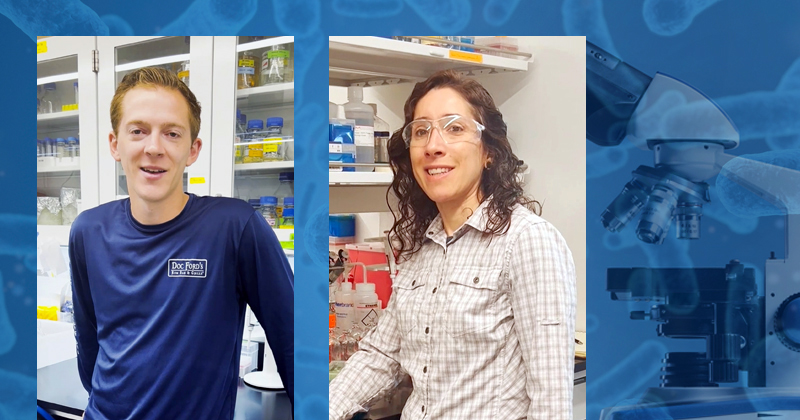
Read about how the UD microbiology graduate program unleashes the power of tiny creatures in UDaily
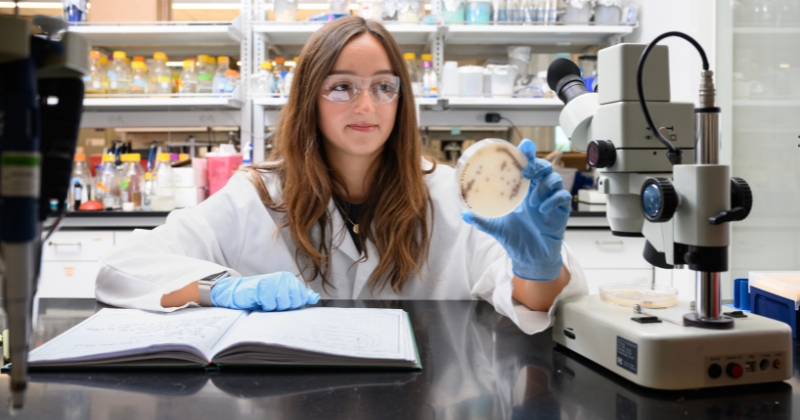
Read about how the UD microbiology graduate program investigated how a bacteria naturally found in the soil that is beneficial to human health can enhance the levels of the amino acid and antioxidant ergothioneine in spring wheat in UDaily.
The goals of this graduate program are to:
- Recruit and support a diverse pool of high-quality graduate students in Microbiology
- Support diverse Microbiology faculty invested in cutting-edge student training
- Rigorously deliver foundational concepts in genome-enabled Microbiology via a core curriculum
- Provide rigorous electives to support broad exploration beyond the core curriculum
- Foster professional skills in trainees, enabling them to succeed in multiple career paths
- Facilitate cross-departmental and cross-college research collaborations
-
RENEE HOOVER
Ph.D. student, Microbiology
“The interdisciplinary support, with access to experts in many fields at UD, has been crucial for my research on freshwater bacteria that oxidize iron which can help us improve soil and water quality.”
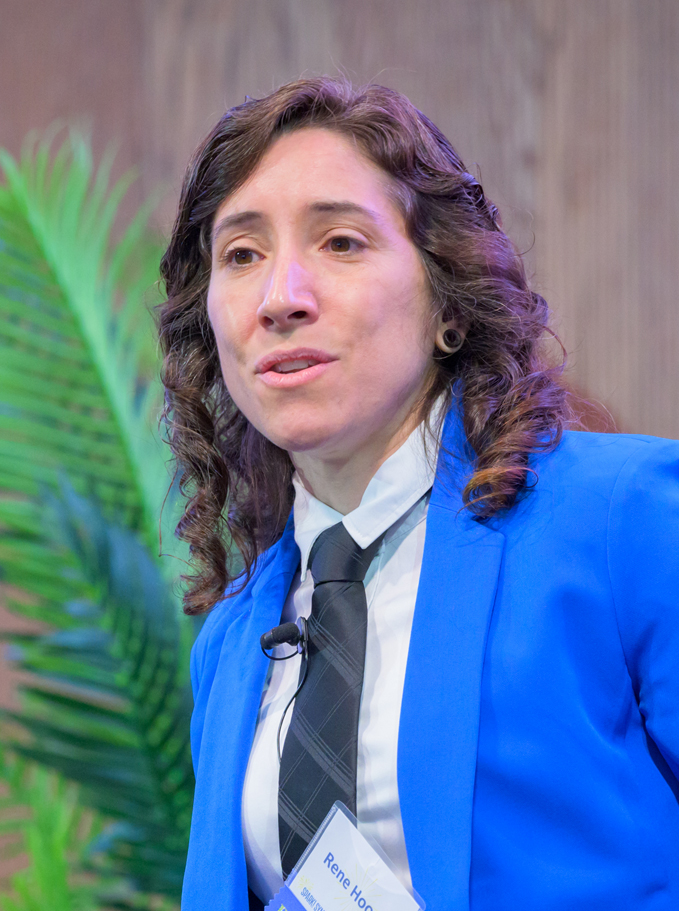
-
AUSTIN MORGAN
Ph.D. student, Microbiology
“UD’s microbiology program is perfect for synthetic biology enthusiasts like me, providing access to multiple labs and projects to enhance genetic circuit stability.”
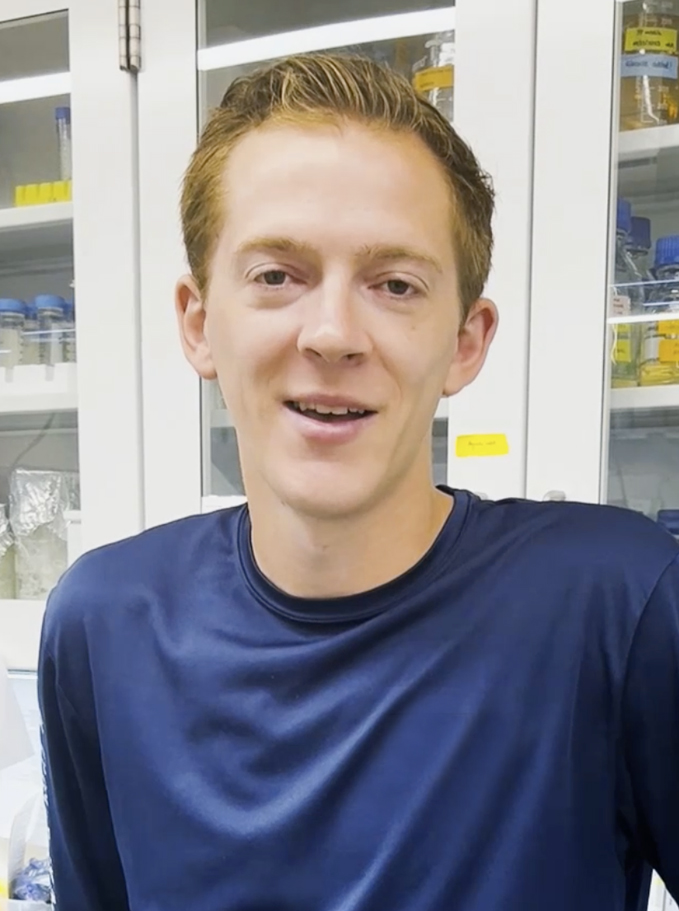
-
gracee tothero
Ph.D. student, Microbiology
“There is so much diversity in the environmental microbiology work at UD, and the collaborative culture here helps me as I study the impact of iron-oxidizing bacteria on biogeochemical cycles and nuclear waste contaminants.”
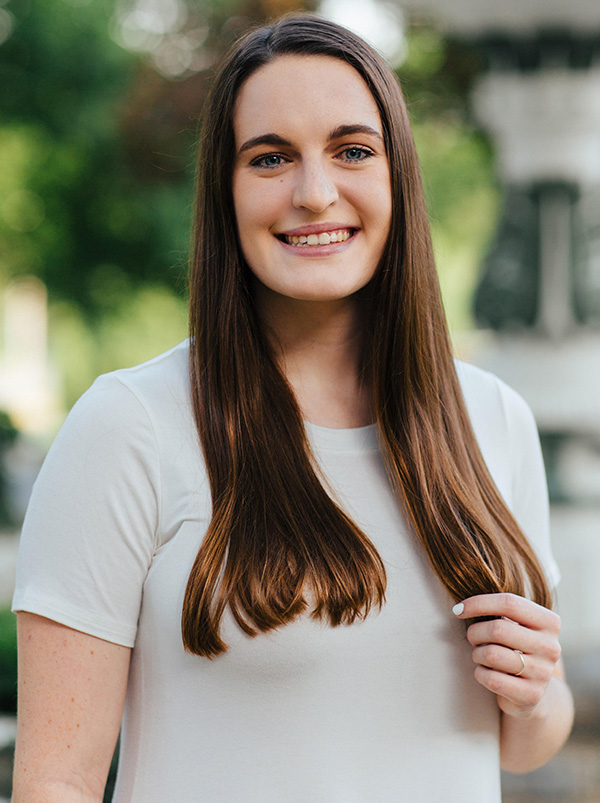
-
Casey Derieux
Ph.D. student, Microbiology
“The supportive faculty and collaborative environment at UD have made it feel like home while I research how genes influence the growth of green sulfur bacteria.”
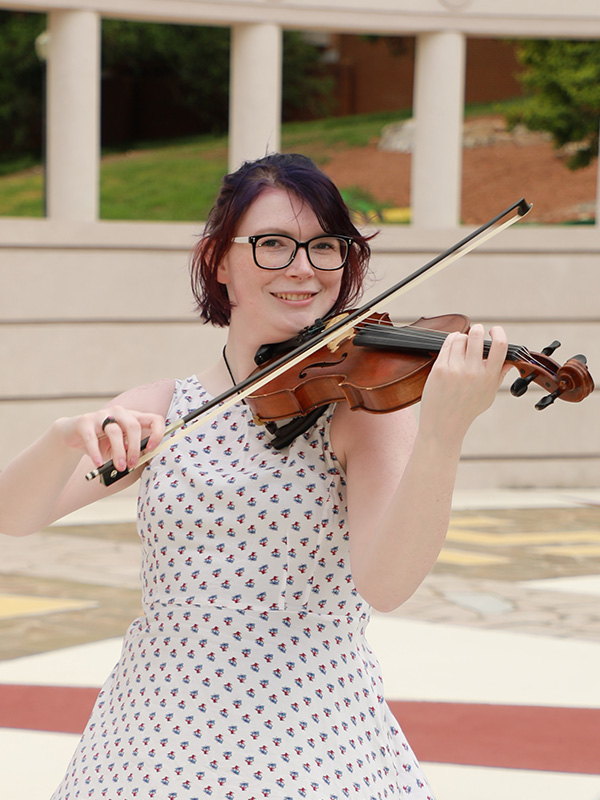
-
Alex Pipinos
Ph.D. student, Microbiology
“From the Mass Spectrometry Center to the Bioimaging Center, the vast resources and collaborative atmosphere at UD have been invaluable as I explore using ergothioneine-producing microbes to enhance crops.”
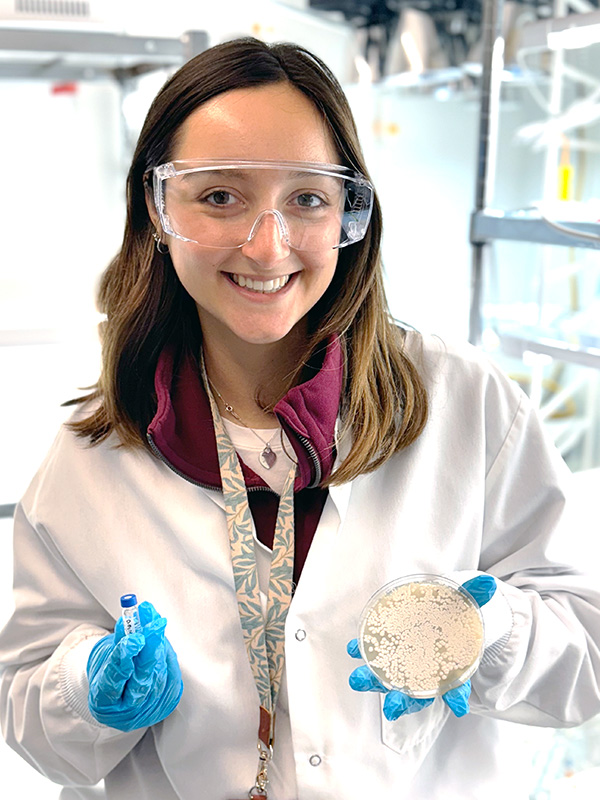
-
Aerin Rost-Nasshan
Ph.D. student, Microbiology
“The friendly and supportive community at UD has been instrumental in my work designing genetic tools for green sulfur bacteria to advance biotechnological research.”
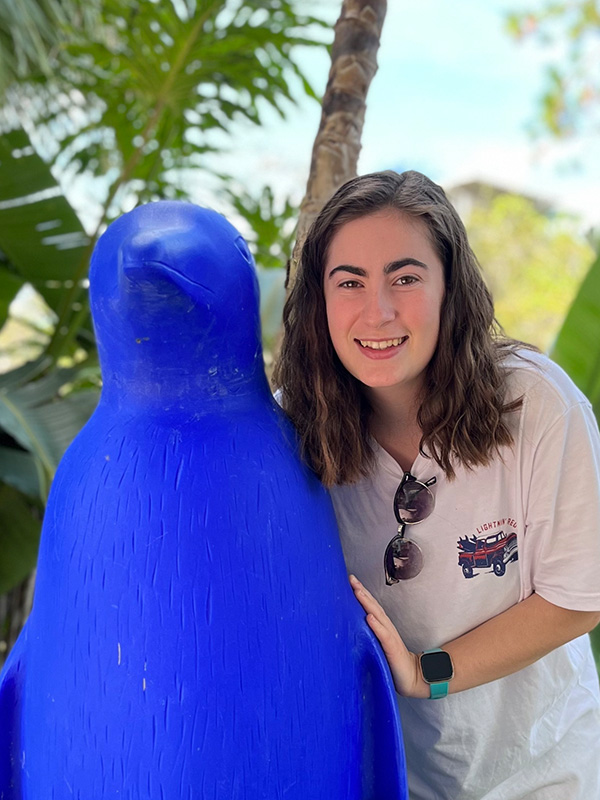
-
Emily Morgese
Ph.D. student, Microbiology
“My study of soil viruses and symbiotic nitrogen-fixing bacteria as eco-friendly alternatives to harmful human-made fertilizers is enhanced by the sense of community in the microbiology program.”
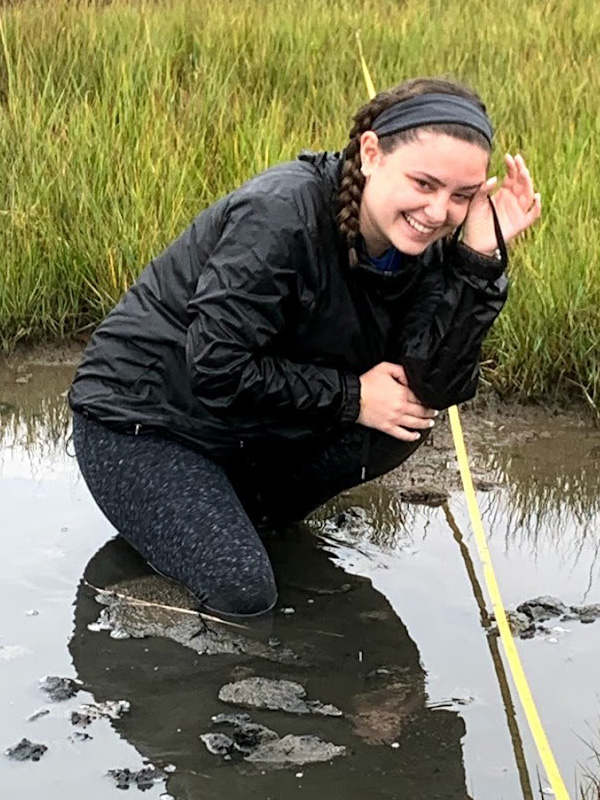
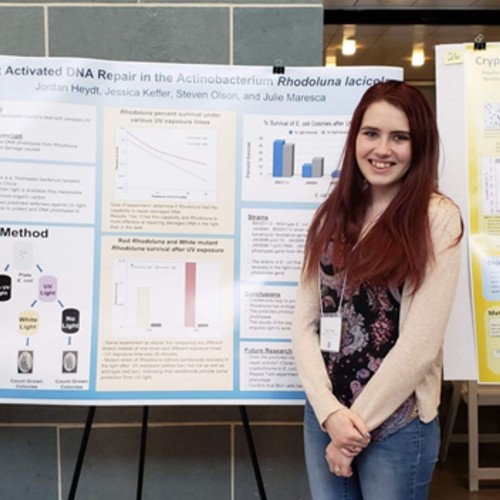
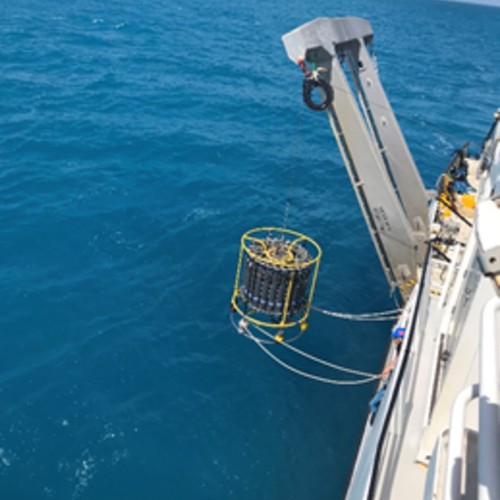
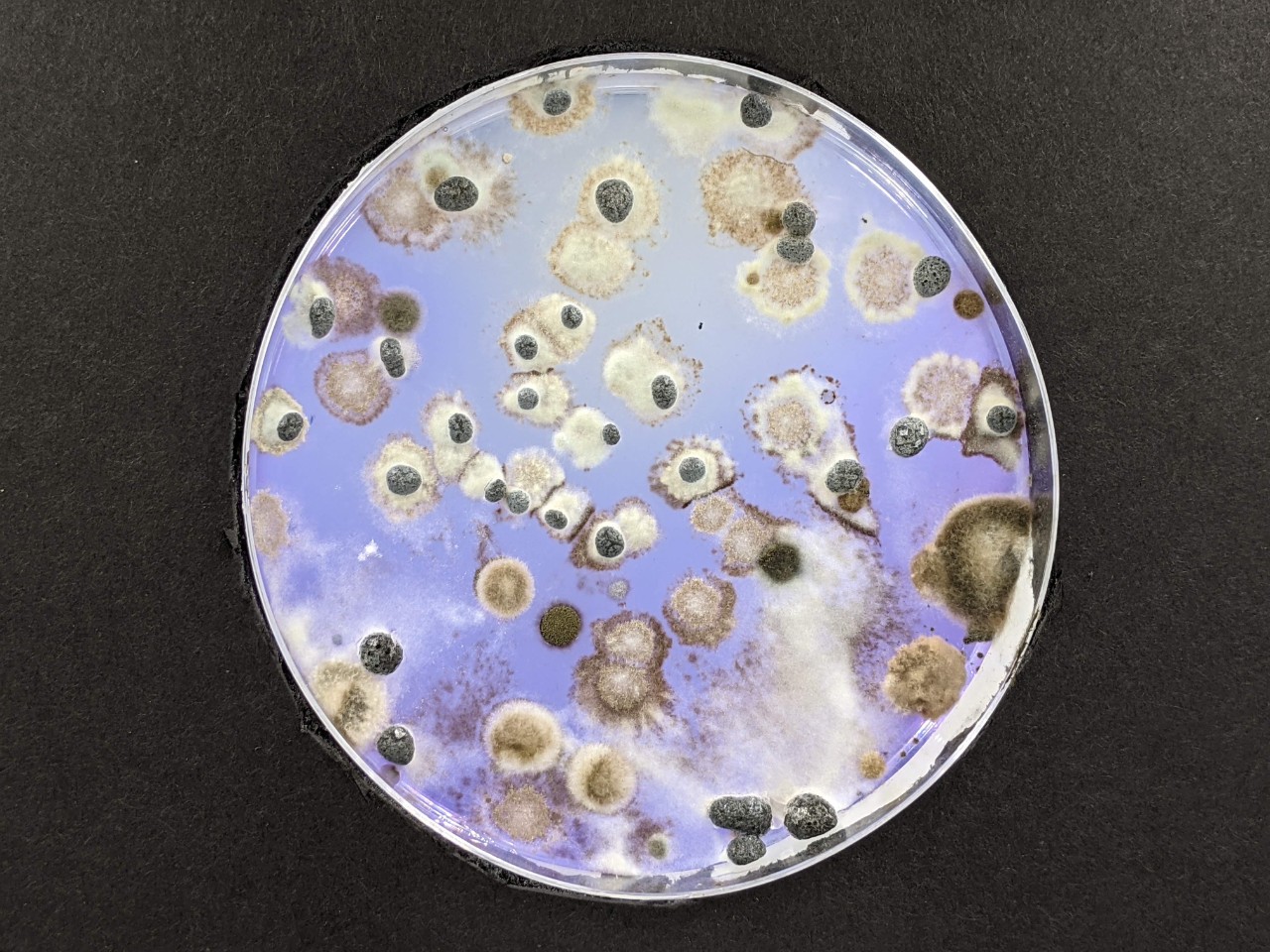
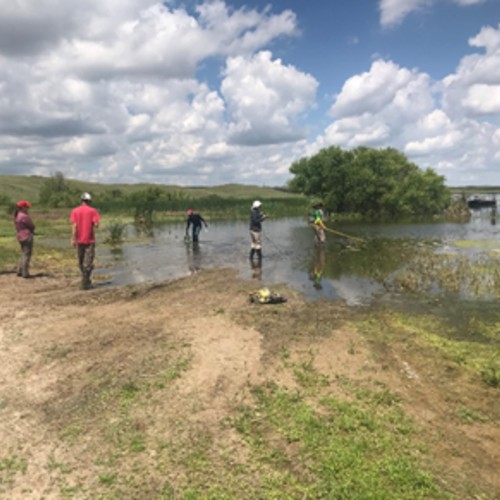
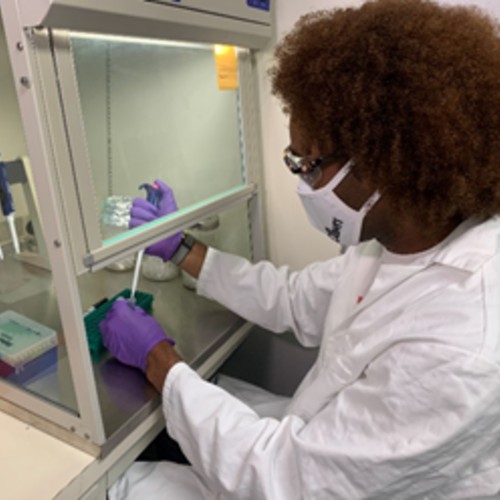
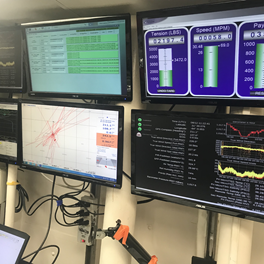
-
Women’s Caucus 2025 Torch Award
Article by University of Delaware Women’s Caucus | December 18, 2025
Professor Jennifer Biddle recognized for her commitment to advancing women’s equality on campus
-
Delaware Football wins first FBS Bowl Game
Article by UD Athletics Staff | December 18, 2025
Delaware becomes second team ever to win a bowl game in its first FBS season
-
Nominate a colleague for UD’s Staff Excellence Awards
Article by Human Resources | January 02, 2026
Nominations are due Feb. 14, 2026

